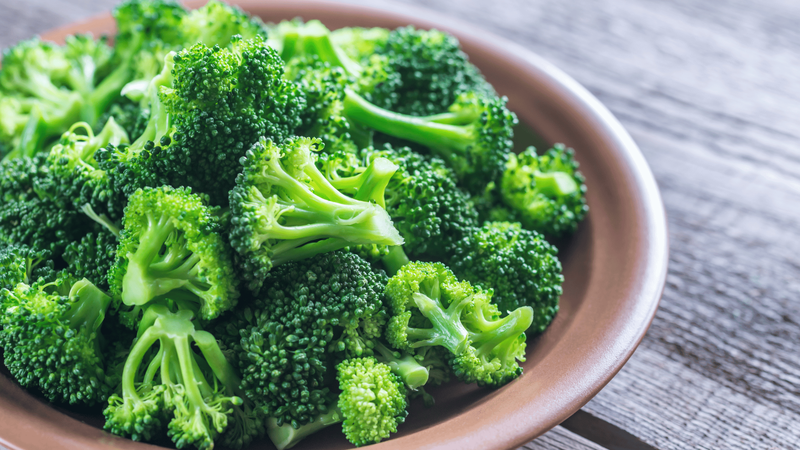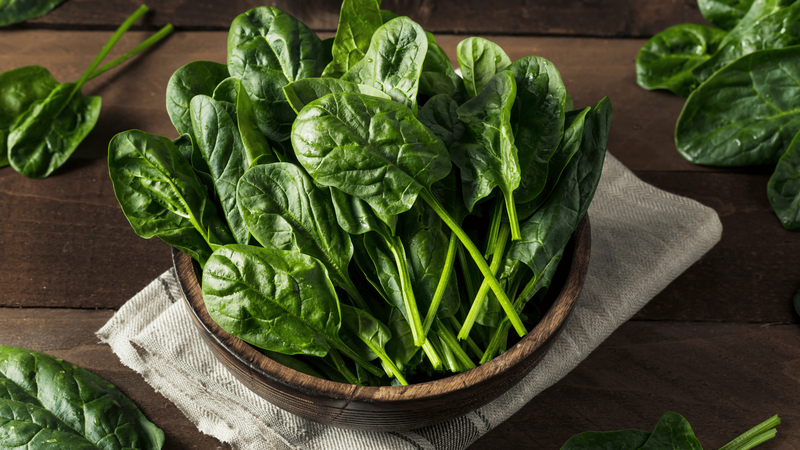Not only providing a rich source of nutrients such as vitamins, minerals and fiber, vegetables also contribute to strengthening resistance, supporting digestion, and preventing many dangerous diseases. Let’s explore the best vegetables for health through the article below.
Vegetables not only enrich meals but also play an important role in providing essential nutrients for the body. Scientific studies have shown that consuming enough vegetables every day can reduce the risk of many chronic diseases such as cardiovascular disease, diabetes and some types of cancer. Let’s review the vegetables that bring the best nutritional value to health through this article.
Why eat more vegetables?
Eating more vegetables is one of the simplest ways to protect and improve health. Vegetables not only provide essential nutrients such as vitamins, minerals, and fiber, but also bring many outstanding benefits:
- Enhance resistance: Green vegetables contain a lot of vitamins C, E, and antioxidants, helping the body fight bacteria, viruses, and pathogens.
- Support digestion: Fiber in vegetables helps regulate bowel movements, prevent constipation, and improve intestinal health.
- Control weight: Vegetables are low in calories but rich in nutrients, creating a feeling of fullness for a long time, an ideal choice for those who want to lose weight or maintain their figure.
- Prevent chronic diseases: Eating lots of vegetables can reduce the risk of cardiovascular disease, diabetes, and cancer thanks to natural biological agents.
- Beautify the skin: Vitamins and antioxidants in vegetables support skin regeneration, helping the skin to be healthy, smooth, and anti-aging.
- Prevent cancer: Many studies show that eating lots of vegetables can reduce the risk of certain types of cancer such as colorectal cancer and lung cancer.
- Good for the eyes: Vitamins A, C and E in vegetables help protect the eyes, reducing the risk of eye diseases such as macular degeneration.

Eating vegetables brings many health benefits
The Healthiest Vegetables
Vegetables are an essential part of your daily diet, providing many health benefits thanks to their rich nutritional content. Here are some vegetables that are recommended to be added to your diet to optimize your health:
Bucket
Bucket is not only a popular dish but also very good for your health. This vegetable is rich in vitamin K, which helps improve platelet function and reduce the risk of type 2 diabetes. In addition, bok choy also helps strengthen bone and joint health and supports anti-inflammatory. You can prepare bok choy by stir-frying it with garlic, olive oil or adding it to soups or noodles.
Kale
Bucket is a rich and nutritious green vegetable, rich in vitamins C, K, A, and beta-carotene. These nutrients not only help improve skin health but also protect the body from harmful oxidants.
Broccoli
Broccoli is one of the most nutritious vegetables, containing lots of vitamin C, K, fiber and antioxidants that can prevent diseases. Broccoli is especially prominent in reducing the risk of cancer thanks to the compound sulforaphane. Moreover, this vegetable also helps strengthen bone and joint health thanks to its abundant vitamin K. Broccoli can be prepared in many ways such as stir-fried, boiled, cooked in soup or mixed in salad.

Broccoli is rich in vitamin K which improves bone health.
Asparagus
Asparagus is a source of folate and B vitamins, which help reduce the risk of heart disease and high blood pressure. Asparagus also contains antioxidants that improve brain function and slow down the aging process. To prepare asparagus, simply peel, wash and boil, roast or mix into salads.
Arugula
Watercress is a vegetable with a distinctive flavor, rich in vitamins A, C, K and antioxidants, which help protect the body from chronic diseases such as heart disease and cancer. Watercress can be prepared simply by eating raw in salads or adding to stir-fries.
Peas
Peas are an excellent source of fiber, which helps support digestion and lower blood cholesterol. Peas help create a feeling of fullness for a long time, reducing the risk of obesity. This vegetable can be prepared in many ways such as stir-fried, grilled, or mixed into salads, contributing to providing a healthy source of energy for the body.
Spinach
Spinach is one of the healthiest vegetables, especially for people with type 2 diabetes. Spinach is rich in vitamins C, A, K and manganese, which help strengthen the immune system and fight aging. Adding spinach to your daily meals can help reduce the risk of chronic diseases such as heart disease and cancer.

Spinach is a vegetable that helps strengthen the immune system and is a good anti-aging vegetable.
Radishes
Radishes are high in nitrates, which are good for heart health, help regulate blood pressure, and improve circulation. They also provide fiber, vitamin C, and essential minerals. You can prepare radishes by stir-frying, roasting, or eating them raw in sandwiches.
Swiss chard
Swiss chard contains lutein and zeaxanthin, two antioxidants that are good for the eyes, helping to prevent eye diseases such as macular degeneration. This vegetable is rich in vitamins K, C, and minerals that are important for bone health and the immune system. Swiss chard can be prepared by steaming, boiling, or lightly stir-frying.
Springs
Springs, which include sprouts from kale, watercress, and other vegetables, contain higher levels of vitamins C and E than mature plants. These sprouts can be eaten raw, providing abundant nutrients for the body. Sprouts are often used in salads, sandwiches or as a garnish for soups.
Notes when eating vegetables every day
When eating vegetables, there are some important notes to help you maximize the nutritional value and ensure your health. Here are some points to note:
- Choose clean and safe vegetables: Choose vegetables from reputable sources, avoid vegetables with chemical residues.
- Wash vegetables before eating: Wash vegetables under clean running water and soak in a diluted salt water solution for 5-10 minutes.
- Do not cook vegetables for too long: Cook vegetables at low temperatures and for a short time to preserve nutrients.
- Eat a variety of vegetables: Provide adequate vitamins, minerals and fiber from many different types of vegetables.
- Considerations for people with digestive problems: Prepare vegetables that are easier to digest, such as thoroughly cooked or pureed.
- Be careful with high-oxalate vegetables: Limit eating high-oxalate vegetables such as spinach and kale if you have kidney problems.
- Eat fresh and seasonal vegetables: Fresh vegetables will provide more nutrients and less preservatives.
- Make a habit of eating vegetables in your daily meals: Make sure each meal has at least one portion of vegetables to add nutrients and fiber.

Vegetables should be washed and soaked in salt water before eating.
Vegetables are not only rich in vitamins, minerals and fiber, but also help support the digestive system and strengthen the immune system. Choosing and preparing vegetables properly will help you maintain good health and prevent disease.





